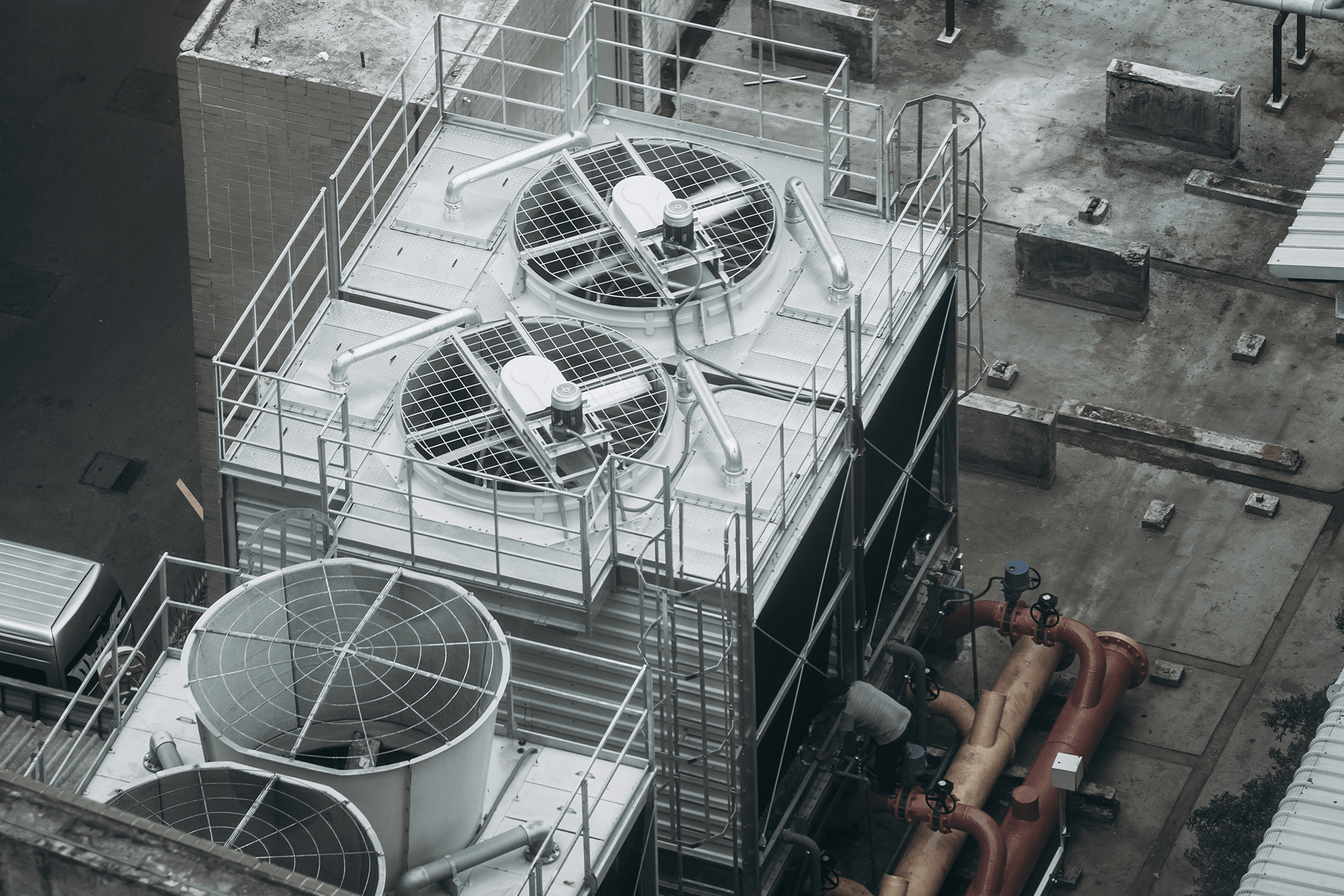In the HVAC industry, selecting the right chiller is crucial for optimizing energy efficiency and long-term operational costs.
Among the leading technologies are oil-free magnetic bearing chillers and variable-speed screw chillers.
While oil-free chillers have been marketed for their high efficiency and frictionless operation, variable-speed screw chillers offer competitive advantages, particularly in real-world applications.
This article compares these two technologies by analyzing their energy performance, compressor efficiency, and operational considerations.
Efficiency Considerations: Oil-Free Magnetic Bearing vs. Oiled Screw Chillers
One of the primary selling points of oil-free magnetic bearing chillers is the elimination of energy losses due to friction, theoretically increasing efficiency. However, it is important to note that the most efficient chillers in the industry are still oiled chillers. This is largely because the compressor, which accounts for over half of a chiller’s energy losses, plays a critical role in efficiency.
For any chiller to be truly efficient, it must start with a highly optimized compressor. In this regard, screw chillers with pure speed capacity control eliminate losses associated with mechanical unloaders, providing significant efficiency improvements.
Energy Losses: Understanding the Real Impact
Oil-free chillers often market the benefits of eliminating bearing friction and preventing oil contamination in heat exchangers. However, modern oiled chillers have minimized these losses to a negligible level. The impact of oil on heat transfer efficiency is minimal, ranging between 0.1% and 1% depending on the load.
On the other hand, magnetic bearing compressors, despite their claims of frictionless operation, do consume power for their positioning sensors. Additionally, these compressors include mechanical touchdown bearings as a safeguard against levitation failure.
Capacity Control and Mechanical Unloaders
One of the critical differentiators between centrifugal and screw compressors is the handling of capacity control. Centrifugal chillers often require mechanical unloading to prevent surges when operating at partial loads. These unloaders restrict, recirculate, or bypass flow, increasing the head pressure on the compressor and significantly raising power consumption. The impact of these losses can range anywhere from 4% to 50%.
In contrast, screw compressors with pure speed capacity control do not require mechanical unloading, making them far more efficient at lower capacities. Unlike centrifugal compressors, which are bound by ideal fan laws, screw compressors can operate flexibly across a range of conditions, leading to best-in-class Integrated Part Load Value (IPLV) performance.
Real-World Performance vs. IPLV Ratings
While IPLV is often used as a benchmark for chiller efficiency, it is essential to understand its limitations. IPLV assumes a declining entering condenser water temperature with load, which may not be realistic in all climates. Consequently, screw chillers can outperform centrifugal chillers in actual conditions, even if IPLV ratings do not always reflect this advantage.
Additionally, IPLV calculations rely on BIN metrics, which use average values that may not accurately represent the unique demands of specific applications. This can lead to misleading comparisons between different chiller technologies.
Long-Term Performance and Reliability
There has been speculation that oiled chillers degrade over time due to increasing oil concentration in the system. However, there is no concrete evidence to support this claim. In reality, rolling element bearings in screw compressor designs offer long life and operational simplicity. This makes them a highly reliable option for long-term performance.
Conclusion
While oil-free magnetic bearing chillers eliminate friction losses, the real-world efficiency gains are marginal compared to the benefits provided by variable-speed screw chillers. The mechanical unloading requirement of centrifugal chillers, along with their sensitivity to load variations, makes them less efficient in many practical applications. In contrast, screw chillers, with their pure speed capacity control and best-in-class IPLV performance, often provide superior efficiency and reliability over a wide range of operating conditions.
For facility managers and engineers looking to maximize chiller efficiency, the choice should be guided by real-world performance rather than marketing claims. In many cases, variable-speed screw chillers present a more practical and energy-efficient solution than their oil-free magnetic bearing counterparts.


